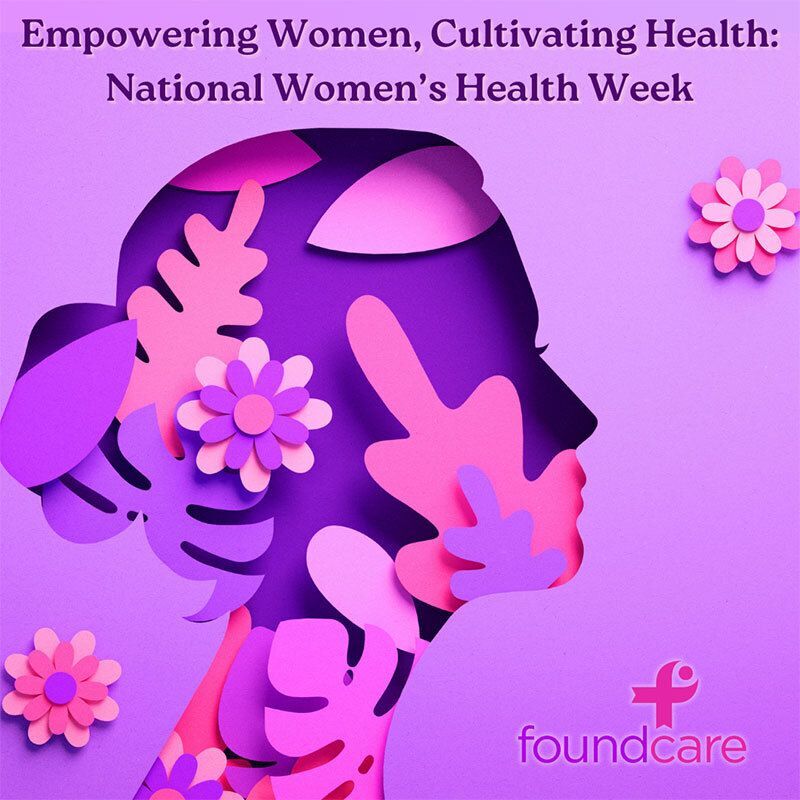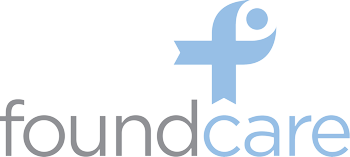
Amidst the whirlwind of daily life, women often prioritize the needs of others over their own well-being. Throughout the stages of puberty, menopause, and beyond, women undergo distinct physiological changes, highlighting the crucial need for regular check-ups to sustain overall well-being and detect potential issues at an early stage. Skipping routine doctor visits can lead to serious consequences. With the onset of National Women's Health Month and Women’s Health Week, FoundCare strives to highlight the importance of women's health year-round. Our dedication to this mission extends from routine check-ups to specialized screenings, advocating not just for medical care but also for empowerment and support for women everywhere.
Prioritizing Your Health
At the forefront of maintaining good health is making sure to schedule regular appointments with your healthcare provider. Whether you're feeling healthy or experiencing symptoms, routine check-ups are crucial for preventive care. For the average adult, it's generally recommended to see a doctor for a routine check-up at least once a year. However, this frequency may vary depending on individual health conditions, age, and risk factors. Your FoundCare provider will assess your general health, address any concerns or symptoms you may have, and recommend appropriate screenings based on your age, lifestyle, and medical history. It's important to discuss with your healthcare provider what schedule is best suited to your specific needs.
Here are some common screenings recommended for women:
- Pelvic Exam and Pap Smear: Regular pelvic exams and Pap smears are vital for the early detection of cervical cancer and other gynecological issues. According to the American College of Obstetricians and Gynecologists, Pap smear screening should start at age 21, with a frequency of once every three years until age 29. From ages 30 to 65, Pap smears, combined with an HPV test, can be conducted every three to five years.
- Mammogram: Breast cancer ranks among the most prevalent cancers affecting women globally. Mammograms (an x-ray of the breast tissue) are instrumental in detecting breast cancer early, when treatment is most effective. According to the American Cancer Society, women aged 40 and older are generally advised to have a mammogram every one to two years, though earlier screening may be recommended for those with a family history of breast cancer or other risk factors.
- Blood Pressure Screening: High blood pressure, or hypertension, often lurks without symptoms, yet untreated, it can lead to severe health complications like heart disease and stroke. Women with normal readings should undergo blood pressure checks at least once every two years, while those with higher blood pressure or other risk factors may require more frequent monitoring.
- Cholesterol Test: Elevated cholesterol levels pose a heightened risk of heart disease, the leading cause of death among women. A cholesterol test, also known as a lipid panel, assesses cholesterol and triglyceride levels in the blood. Starting at age 20, women should undergo cholesterol testing at least once every five years. However, individuals with risk factors such as obesity or a family history of heart disease may require more frequent screenings.
- Mental Health Screenings: Depression is a prevalent concern among women. According to data from the CDC, approximately 1 in 10 women experience depression each year, with postpartum depression affecting 1 in 8 new mothers. Mental health screenings play a pivotal role in identifying symptoms early and provide an opportunity to address mental health concerns proactively, offering a chance to learn new coping mechanisms early on before the concerns escalate into depression or worsen from neglect.
- Colorectal Cancer Screening: While historically less emphasized in women, colorectal cancer screening is important for everyone. Screening methods include colonoscopy, stool tests, and sigmoidoscopy. The recommended age to begin screening varies depending on individual risk factors and family history.
- Diabetes Screening: Women with risk factors such as obesity, high blood pressure, or a family history of diabetes should be screened regularly for type 2 diabetes.
- Skin Cancer Screening: Regular skin exams by a healthcare provider can help detect skin cancer early, especially for women with fair skin or a history of significant sun exposure.
- Bone Density Test: Also known as a DEXA scan, this test measures bone density and can help detect osteoporosis or assess the risk of fractures. Women aged 65 and older, or younger women with risk factors such as low body weight or a family history of osteoporosis, may benefit from this screening.
FoundCare’s Commitment to Empowerment and Care
FoundCare believes that every woman deserves access to comprehensive, compassionate, and empowering healthcare services tailored to her unique needs. As advocates for women's health, we are proud to offer a safe and welcoming space where women can prioritize and advocate for their health with confidence. At FoundCare, we offer a comprehensive suite of women's health services designed to address every aspect of a woman's health journey. From routine check-ups, gynecological exams, prenatal and postpartum care, and mammograms, our dedicated team of women’s health professionals are committed to providing personalized care that meets the diverse needs of women at every stage of life. Whether you're visiting us for a routine check-up or seeking support for a sensitive health issue, you can trust that you will be treated with dignity and respect every step of the way.
Take the first step towards prioritizing your health today by scheduling a wellness visit at FoundCare. Your health is a treasure, and with our unwavering support, every step you take becomes a valuable investment in a brighter, healthier future.
